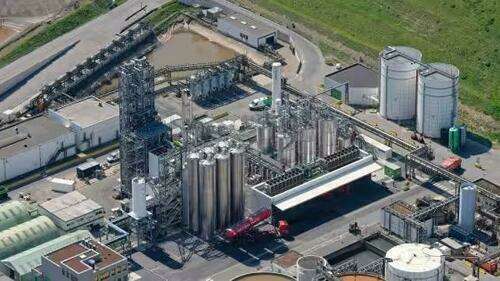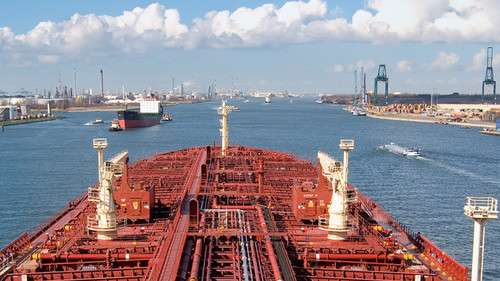INEOS Styrolution marks milestone with first commercial delivery of recycled styrene monomer from Indaver
Frankfurt, Germany – The first truckloads of recycled styrene monomer (SM) have arrived at INEOS Styrolution’s Antwerp site. The material was supplied by Indaver from its new depolymerisation plant, the first facility in Europe dedicated to polystyrene recycling, inaugurated on 25th September 2025. Also located in Antwerp, this local set-up keeps the supply chain short and sustainable.
This is the first commercial-scale delivery of recycled SM in Europe. It enables the production of high-quality polystyrene and other styrenics, including for food-grade, transparent, and medical applications.
This recycled feedstock adds to INEOS Styrolution’s sustainable styrenics portfolio, which already comprises mechanically recycled and bio-attributed grades, and demonstrates the company’s ability to deploy multiple recycling technologies for different waste streams.
“We are pleased that we can now offer styrenics from depolymerisation at market scale”, remarks Rob Buntinx, President EMEA, INEOS Styrolution. “This gives our customers more sustainable options to lower their environmental footprint without compromising product quality or performance.”
“With Plastics2Chemicals (P2C), Indaver is pioneering in the circular economy and advanced chemical recycling. By converting hard-to-recycle plastics into virgin-quality feedstock such as styrene, we are closing the loop and offering a sustainable alternative to fossil resources”, states Erik Moerman, Sales and Development Director P2C. “Our in-house developed technology, combined with strategic partnerships and continuous innovation, enables us to deliver high-purity materials for demanding applications like food packaging − proving that circularity and performance can go hand in hand.”
This milestone highlights what sets polystyrene apart: it can be broken back down to its original monomer and rebuilt for high-value use. Depolymerisation is also more energy-efficient than other advanced recycling methods such as pyrolysis. It keeps the material in circulation, turning waste back into a valuable resource instead of landfill or litter.
Further information:
Depolymerisation is a chemical recycling process that breaks polystyrene down into its original building block styrene monomer, in contrast to mechanical recycling where plastic waste is physically processed back into pellets, without changing the basic chemical structure of the material. As the material is returned to the molecular level during depolymerisation, it enables the production of new styrenics with the same quality and properties as fossil-based products, including compliance with strict food-contact standards. Compared to conventional fossil-based production, depolymerisation avoids multiple resource-intensive steps, resulting in lower resource use and significantly reduced greenhouse gas emissions.
Categories
Investments
2022-01-01
€ 100 mln at Port Of Antwerp (BE)Chemical substances
Countries
Companies
Latest news
Hycamite’s technology to decarbonize shipping awarded AiP by industry leader DNV
Kokkola Industrial Park →Hycamite’s proprietary Thermo-Catalytic Decomposition (TCD) technology offers a new approach to producing clean hydrogen by breaking down methane, the primary component of liquefied natural gas (LN...
Clariant catalysts will power the Ecoplanta: Europe's first waste-to-methanol plant
Chemmed Cluster Tarragona →Repsol is building Europe’s first plant to produce renewable methanol from urban waste The facility will use Enerkem gasification technology to produce 240 KTA of methanol Clariant will supply cata...
Lilly plans to build a new $3 billion facility to boost oral medicine manufacturing capacity in Europe for patients worldwide
Netherlands site will bring 500 manufacturing and 1,500 construction jobs while further strengthening Lilly's global supply chain
Ports of Duisburg and Rotterdam advance energy transition together
Port of Rotterdam →With this LoI, the two major European logistics hubs reinforce their goal of jointly developing sustainable transport corridors via waterways as well as future-oriented initiatives for the energy t...



